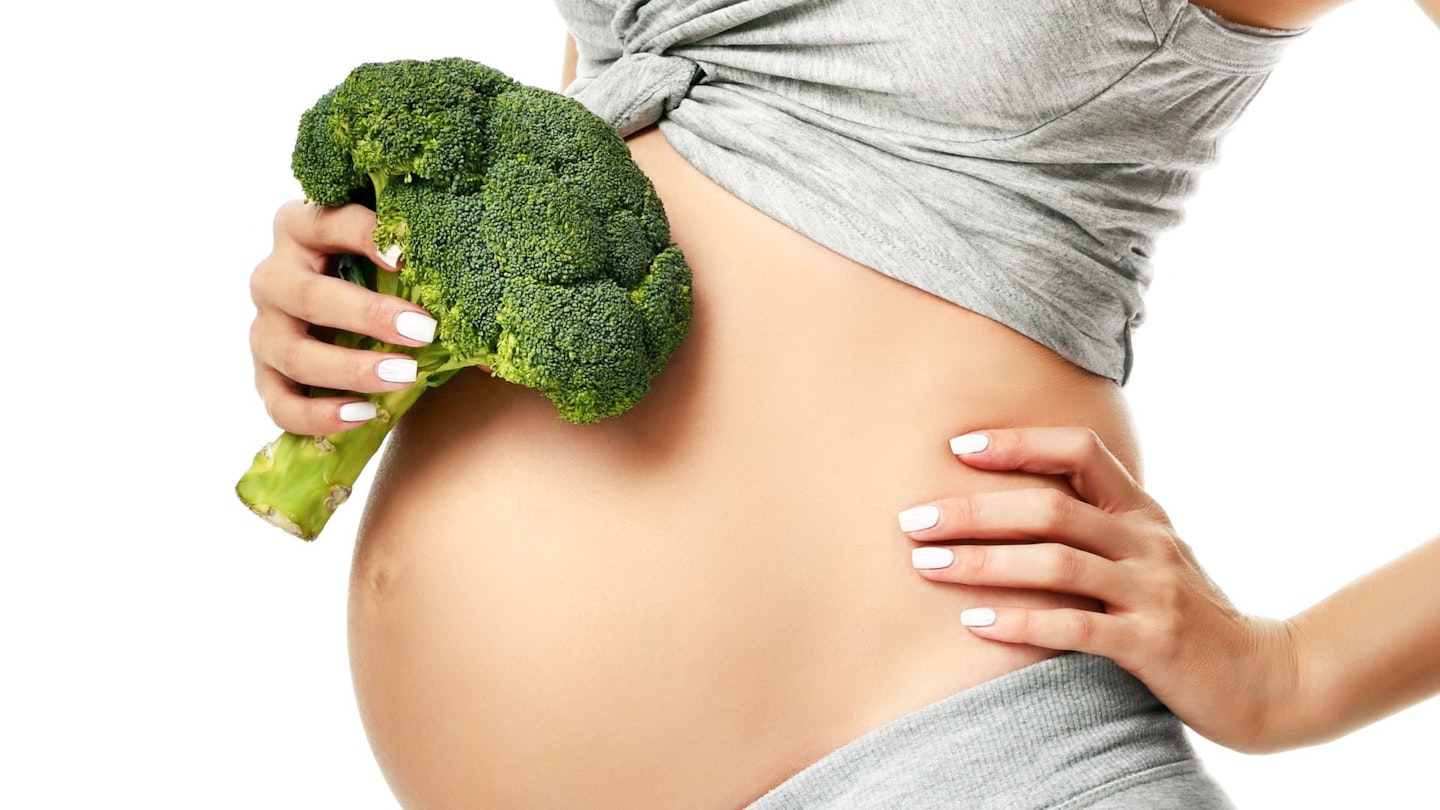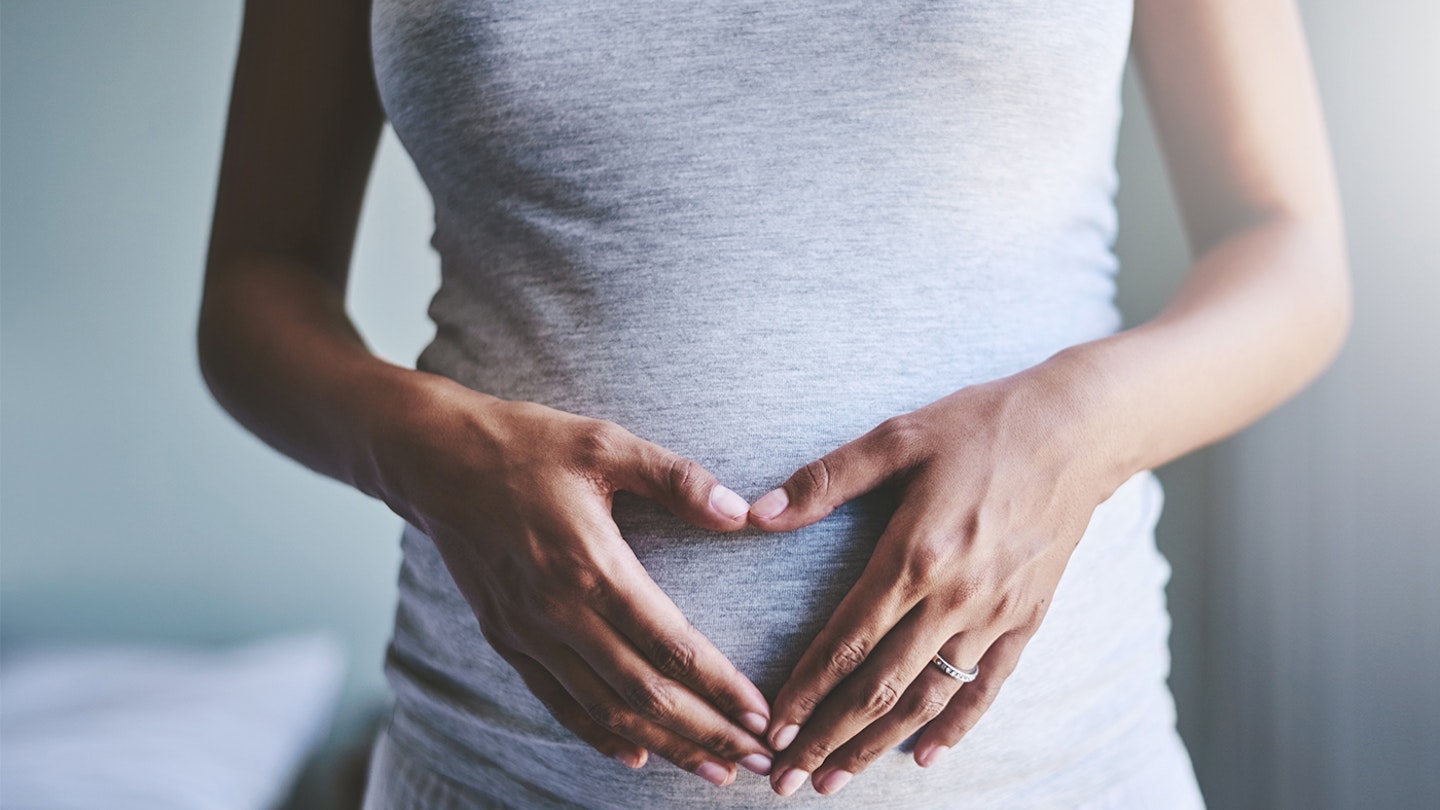At 27 weeks pregnant you're in the last week of your second trimester, and are entering the third trimester. Your baby’s eyes are changing colour, and your body’s experiencing some peculiar pregnancy symptoms. Here’s everything you need to know about your baby and your body at 27 weeks.
Your baby is almost double the weight they were four weeks ago. This week they're nearly two pounds and around 14 and a half inches long, making it about the same size as a head of broccoli.

What’s my body doing at 27 weeks pregnant?
You’ve probably noticed that you’re starting to gain some baby weight and may be feeling uncomfortable and bloated. This is due to the pregnancy hormone, progesterone, and because your stomach is being squeezed by your baby.
If you experience constipation then make sure you’re eating plenty of high-fibre foods. Plenty of water and lots of fresh fruit and vegetables will also help with this and bloating.
What’s my baby doing at 27 weeks pregnant?
Brain development
Your baby’s brain is really active these days, as more brain tissue is developing. They're an active foetus, sleeping and waking up regularly, opening and closing their eyes and sucking their fingers too.
Movement
If you’re feeling any small rhythmic movements that feel like belly spasms, don’t be alarmed: they're just baby hiccups. Don’t fret, as these movements are usually short-lived and don’t harm your baby at all.
Your baby is as snuggly as ever too, most babies this age still like to assume the cosy curled position inside the uterus, also know as the foetal position.
They can hear better
In other exciting news, your baby’s auditory development will be better than ever as the network of nerves to the ears matures, and they may now recognise both yours and your partner’s voices.
Eye development
Your baby’s eyes will also be developing. The irises – the coloured part of the eye – will have started to develop pigment by now. Many babies are born with blue eyes because they’re still making melanin. Often the eye colour changes during infancy, going from blue to green, hazel or brown. It’s likely that if you’re brown-eyed your baby will be too. But you’ll know for sure by the time your baby is around two years old.
Common symptoms at 27 weeks pregnant

Itchy belly
Itching in pregnancy is common, but you might find your bump beginning to itch a little bit more. When your bump is growing, the stretching skin can cause itching.
Swelling
Commonly affecting the feet, ankles and hands, if the swelling seems to be excessive, check with your doctor, as it could be a sign of pre-eclampsia.
Backache
Your growing bump can put pressure on your back, causing back pain. If you haven't already bought one, a pregnancy pillow can help to relieve backache when you're asleep, or relaxing on the sofa.
Cramp
A frustrating symptom, your leg (particularly your calf) muscle may spasm. They're most likely to occur when you’ve been sitting or lying still for a while.
Bleeding gums
Make sure you visit your dentist throughout your pregnancy, as bleeding gums is a common side effect of hormone changes in your pregnancy.
Constipation and piles
Irregular bowel movements and sluggish digestion are uncomfortable and a nuisance, but it’s perfectly common in pregnancy. Constipation and piles are common as you come to the end of your second trimester.
Heartburn
A mix of hormone changes, your expanding womb pressing on your stomach and relaxing of muscles in the oesophagus can let acid move back out of the stomach. There are ways you can treat pregnancy heartburn, and also do to help prevent it.
Headaches
More common in the first trimester, if you start to experience headaches in your pregnancy after 20 weeks, it's important to contact your midwife or GP if you get a bad, persistent headache.
Stretch marks
Common in pregnancy, stretch marks can appear at any point. They can appear as pink, brown, purple or red streaky lines and they can also be raised and itchy.
Cystitis
If you're feeling uncomfortable when you go to the toilet, it could be a sign of cystitis, a urinary tract infection, which is a common problem during pregnancy.
Nausea and unusual food cravings
Most women will experience food aversions or cravings during their pregnancy, but you might notice more unusual food cravings. You might also find nausea starts to come back too.
What to do in week 27
Eat smaller meals
You might find yourself getting fuller quicker with regular meals, so help your changing tummy and go for smaller, more regular meals that are easier to digest. Try half a sliced avocado on wholemeal bread, summer fruits and natural yoghurt topped with chopped nuts or a ham and salad pitta bread.
Try pregnancy yoga
To help with cramps, try some pregnancy yoga stretches such as straightening out your leg and flexing your ankle and toes. Going for a quick walk can sometimes help, too.
Pelvic floor exercises
You're probably a little sick of hearing this, but keep toning up your pelvic floor muscles with some simple pelvic floor exercises is really important before birth and even after.
Snack before bed
To try and prevent nocturnal cramps from happening by tucking into snacks containing calcium and magnesium, such as a glass of milk and a banana. A magnesium spray might also be a good idea.
Samantha Ball is a Product & Lifestyle Writer for Mother&Baby and freelanced for the website for two years before joining the team full time. She's a mum of two and loves browsing for the best products and cute outfits.
